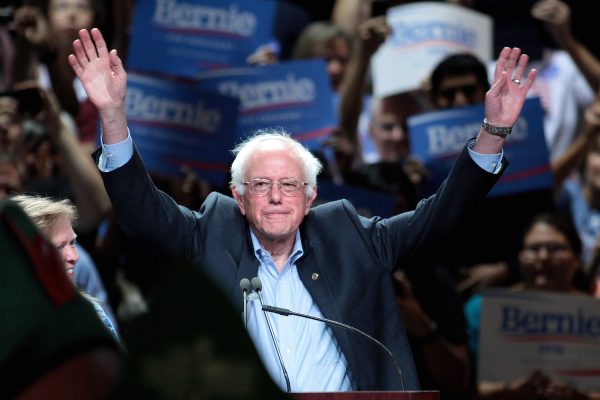
Sixteen Democratic senators, led by the 2016 presidential hopeful Bernie Sanders, have called for reforms that would make all Americans eligible for public health care.
Such a system — the Americans call it “single-payer” — would be uncontroversial in Europe, where most countries guarantee health care to their citizens.
But it seems impossible to get done in America. Why?
It’s not (just) the evil insurance companies
Sanders predicts in The New York Times that there will be “huge opposition” to his bill from “powerful special interests” that profit from the current system:
The insurance companies, the drug companies and Wall Street will undoubtedly devote a lot of money to lobbying, campaign contributions and television ads to defeat this proposal.
Undoubtedly. But they’re not the main problem. Two other groups are:
- Doctors and hospitals. (Sanders doesn’t list them among his “special interests”, but they have a vested interest.) European countries can afford single-payer because they keep health-care costs down and don’t allow health providers to discriminate between patients. In America, hospitals, clinics and physicians face fewer such restrictions.
- Americans with health insurance. Democrats’ focus is on the 28 million who don’t have health insurance. But tens of millions of Americans do and they don’t want to end up paying higher taxes for lower-quality care.
The problem is employer-sponsored health insurance
155 million Americans, close to half the population, get health insurance through their employer.
This system developed somewhat by accident. Wage controls and a tight labor market during World War II led companies to offer fringe benefits, like health insurance, to attract workers. When President Harry Truman failed to implement universal health care after the war (opponents called it “socialism”), Democrats and their allies in the trade union movement doubled down on employer-sponsored health insurance. By 1958, they had managed to give three in four Americans some form of health care.
For the elderly and the poor, who couldn’t afford private insurance, President Lyndon Johnson introduced Medicare and Medicaid in the 1960s.
Employer-sponsored health care is far from ideal. It means people lose their insurance when they lose their job and firing somebody is much easier in the United States than it is in Europe.
But it is what Americans are used to and many fear (wrongly, but not entirely without cause either) that a government-run program would be worse.
